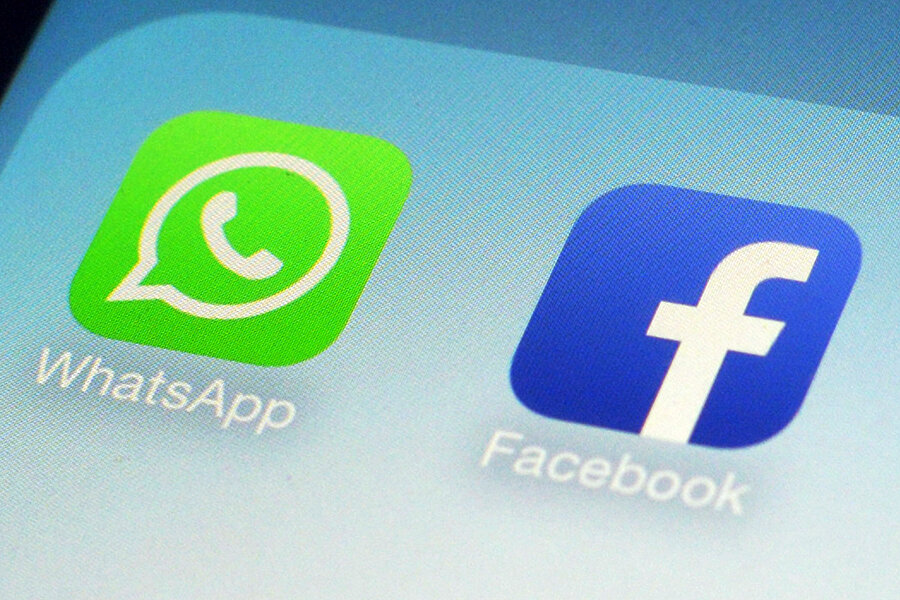How Brazil's cell phone boom is shaking up politics and journalism
Loading...
• A version of this post ran on the author's blog, Riogringa. The views expressed are the author's own.
As Brazil's smartphone market grows, so has the demand for texting apps, and Whatsapp currently reigns supreme. The application, which allows users to send SMS messages using Wifi or phone data, has created a shift in how many Brazilians share information.
Brazil has the largest smartphone market in Latin America, and nearly one in three Brazilians has internet access on their mobile phones. As of April, Whatsapp had approximately 45 million Brazilian users. That means around one in five Brazilians use Whatasapp. But since the service announced this month that it hit 700 million global users, that number could have risen even further. The service is often referred to as "Zap Zap," though a Brazilian-made competitor app also exists under that name.
Brazilians have taken to the service not only as a substitute for text messaging, but also as a social network, sharing content like memes and viral photos and videos. It's even a stand-in for talking on the phone, letting users send voice recordings. It's an incredible change considering that less than two decades ago in Brazil, it could take years to get a home phone installed.
Still, not everyone is a fan of the app. Search for "revoltado Whatsapp" on Youtube and you'll find numerous examples of people fed up with Whatsapp, including videos that have circulated on the app itself. In one, a man complains that the app is endangering his marriage, since his wife gets constant Whatsapp alerts at all hours of the night.
Aside from its use as a social network, Whatsapp has also stood out as a tool in politics, journalism, and transparency. Here are some recent examples.
Politics
For the first time, Whatsapp played an important role during the presidential elections last year, when voters used it to circulate political preferences at a time of strong political divisions. Plus, candidates used it to interact with voters.
One video features presidential candidate Aécio Neves and was one of the most popular pieces of content circulated during the elections. His party, the PSDB, realized the power of the network and created 33 pieces of content exclusively for Whatsapp during the campaign. "We circulated some content to groups of party faithfuls before the first Globo debate, and they shared them with their contacts. It blew up," the PSDB's digital strategy coordinator told VEJA. President Dilma Rousseff's team also used Whatsapp early in the campaign, as well as ramping up messaging ahead of the vote.
Journalism
Some news outlets are using Whatsapp as a means to crowdsource stories, as well as gettings tips about breaking news and potential leads. Sites including Folha de São Paulo, Band, O Dia, Extra,
Rio's Extra is was one of the pioneers in using Whatsapp as a journalistic tool, and has used the app well to aid reporting.
The newspaper launched their Whatsapp project in June 2013. The website has frequently advertised its Whatsapp contact numbers, asking readers to send tips, videos, and photos.
Since it launched the project, Extra received over 1 million messages and more than 60,000 files, including photos, video, and audio. As a result, the newspaper published over 500 stories in its print edition and more than 1,000 online. With so much content, the paper built an entire Whatsapp section with stories using tips and information sent through the app.
Readers have submitted a wide variety of tips, from potholes to crimes to rescues. It was Extra, for example, that reported drug traffickersshooting automatic weapons during a pick-up game before the World Cup. Sometimes, a story contains just a quote or a first-person account from Whatsapp; other times, the whole story is based on a tip.
Recently, Extra has used Whatsapp tips to report on a fiery protest on one of Brazil's major roadways, with residents angry about a prolonged blackout; looting of a truck that turned over in the city's West Zone; and first responders treating a university student who was shot and killed during a mugging in Botafogo.
Transparency
This month, it was the leaking of Whatsapp messages that revealed that the commander of Rio's BOPE, the special operations police force, was circulating pro-Nazi rhetoric and encouraging violence against protesters during the 2013 demonstrations. After the investigation into the officer and the messages were published in the press, he was removed from his position.







